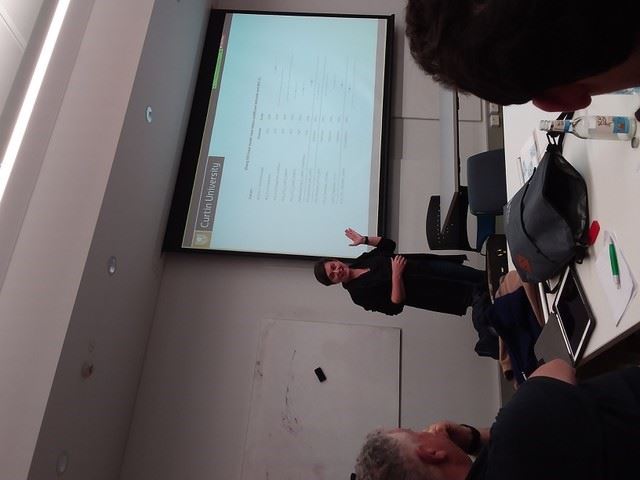Western Australia’s SSA August branch meeting took on something of a festive air in what looks set to become an annual event – a special joint meeting with the Australasian Region of the International Biometrics Society. The presentation by A/Prof Nicola Armstrong from Curtin University provided an interesting introduction to the topic of epigenetic clocks. The title of her talk was “Investigating Epigenetic Clocks”. These clocks estimate “biological” age from blood or other tissues by measuring modifications to the epigenome, such as levels of DNA methylation (the accumulation of methyl groups to DNA molecules), that occur as a direct consequence of ageing.
 Nicola described the basic modelling process that underpins the construction of such epigenetic clocks, being built via a penalized regression such as lasso or elastic net to identify a sparse set of predictive CpGs from the hundreds of thousands of potential methylation sites that are probed. With the supervised learning algorithms trained against chronological age, markers of biological age are derived from observed methylation levels at the final set of predictive sites. Measures of age acceleration/deceleration are then used to assess if underlying tissue ages faster or slower than expected. For illustration, two popular clocks were applied to three different datasets of elderly cohorts, and results from studies assessing disease-induced tissue degeneration were also presented. Several issues arising in application of these methods were discussed. These included the impact on performance of missing probes and pre-processing methods, variation arising from use of different platforms, and dependence of biological interpretation on the sample characteristics of the training data set used. A final word of caution regarding model interpretation noted there are inherent limitations in making personal predictions.
Nicola described the basic modelling process that underpins the construction of such epigenetic clocks, being built via a penalized regression such as lasso or elastic net to identify a sparse set of predictive CpGs from the hundreds of thousands of potential methylation sites that are probed. With the supervised learning algorithms trained against chronological age, markers of biological age are derived from observed methylation levels at the final set of predictive sites. Measures of age acceleration/deceleration are then used to assess if underlying tissue ages faster or slower than expected. For illustration, two popular clocks were applied to three different datasets of elderly cohorts, and results from studies assessing disease-induced tissue degeneration were also presented. Several issues arising in application of these methods were discussed. These included the impact on performance of missing probes and pre-processing methods, variation arising from use of different platforms, and dependence of biological interpretation on the sample characteristics of the training data set used. A final word of caution regarding model interpretation noted there are inherent limitations in making personal predictions.
The evening drew a good crowd, and the host of questions and lively discussion at its conclusion demonstrated that attendees found the talk interesting and engaging!
Bethy McKinnon
